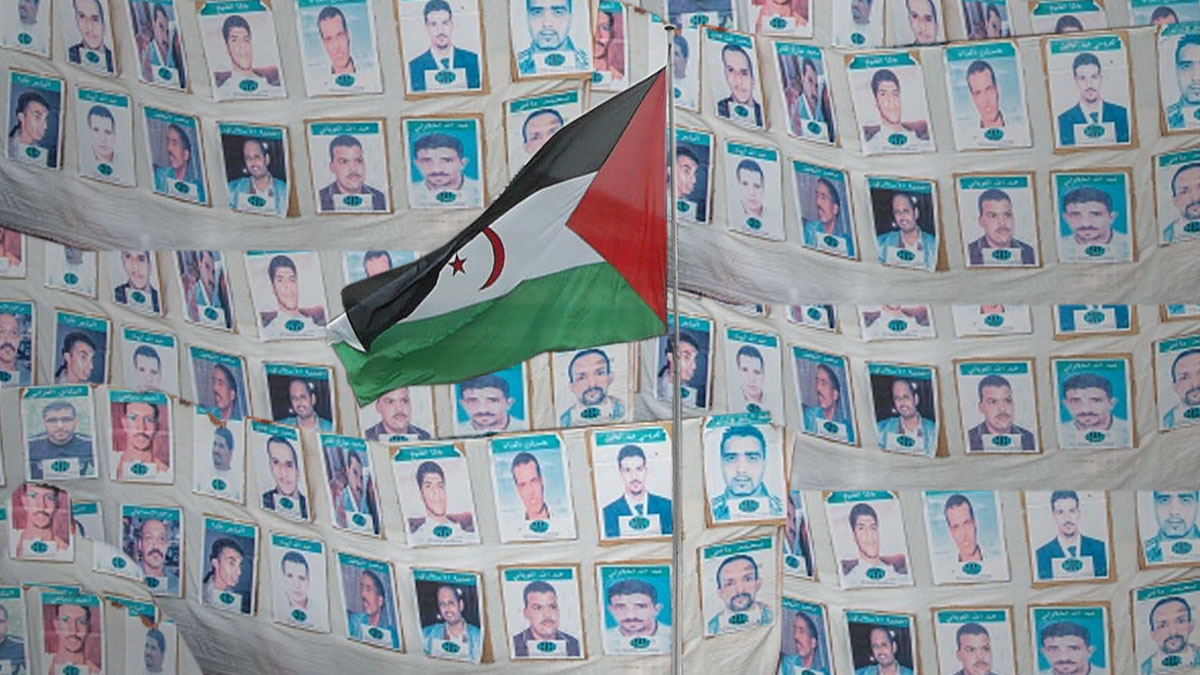Statement concerning the proceedings held against the group Gdeim Izik at the appeal court of sale on the 15th and 16th of May 2017
Statement concerning the proceedings held against the group Gdeim Izik at the appeal court of sale on the 15th and 16th of May 2017
The group of Gdeim Izik commenced Monday the 15th of May to express their discontent towards the court. The detainees held large protest within the court facilities, and demanded that the basic principles of a fair trial must be respected. The accused uttered that the proceedings against them constitutes nothing more than a theater, and they showed their discontent concerning the civil party which is taking an active part in the proceedings without being a formal part in the proceedings. The detainees withdrew themselves from the proceedings, along with their defense attorneys, on the 16th of May.
The court has over several days since the proceedings commenced on the 8th of May heard from the previous approved witnesses. The witnesses in question do not appear on any official reports from the prosecution office, and have only appeared in front of the court now, seven years after the events and the imprisonment of the group.
The witnesses are testifying about events that coincide with the events described in the declarations which the accused claim is falsified against them, and which allegedly are extracted under torture. The witnesses are therefore portraying the camp as a violent resistance camp where the inhabitants in the camp attacked the civil forces with stones, gas bombs, swords, knives and axes. When one of the witnesses was asked about what weapons he saw and started to answer “our weapons…”, he was abruptly interrupted and directed by one of the attorneys belonging to the civil party, which stated: “do not talk about our weapons, but their weapons”. Some of the witnesses stated that they had lived in the camp for over twenty days, and described both the organization and identified several of the accused as leaders in the camp. These witnesses were however not able to name any of their neighbors inside the camp, they could only remember the names of the accused.
Several of the witnesses claim that they can identify the culprits. The presiding judge has on several occasions ordered the group to appear in front of the witnesses for the witness to identify the culprit. The defendants have thus been placed in line in front of the witness in question, whereas the witness has pointed out the right culprit, although he was not able to describe their facial or body characteristics minutes before. The witnesses have not identified the culprit earlier in the process whereas an identification process is absent. The defense attorneys urged that the witness could not identify the culprit in such a manner, since the defendants are known people both in Morocco and in Western Sahara because they appear regularly in the national media portrayed as criminals and murderers.
The detainees refused on the 15th of May to expose themselves in front of the witness for the witness to identify them. The detainees protested and urged that the court was obliged to apply an adequate identification process.
Several of the civilians within the courtroom were furthermore threatening the detainees with hand gestures. The detainees therefore protested harassment within the courtroom. The civil part claimed that the detainees were overshadowing the victims, and demanded that the court took actions to uphold the order inside the courtroom. The detainees protested and declared that they did not acknowledge the civil part, as they had no competence to be present, as they are no official part in the proceedings.
During the 16th of May, Brahim Hamya (I.e. support witness for Abdeljalil Laroussi), was asked what his address was in Boujdour. The detainees protested, since the witnesses from the prosecution office had not been asked about their address, since they needed to be protected according to law as was stated by the residing judge. The detainees claimed that the court had to treat all the witnesses with equality. The detainees thereafter asked to consult with their attorneys, but were stopped by the police officers within the courtroom. After making the preceding judge aware of the obstacle, the defendants were given the room to consult with their attorneys. Mr. Zeyou and Mr. Ettaki were escorted out of the courtroom, and were not given the opportunity to consult with their attorneys alongside with the rest of the group.
At the commencement of the proceedings, the defense attorneys declared that the detainees wish to withdraw themselves from the proceedings. The defense attorneys thereafter withdrew themselves as part of the defense, and explained that not only did they defend the detainees, they also defended their political believes, and that they therefore were obliged to follow the decision made by the accused. The French defense attorneys were not given the chance to explain their withdrawal from the defense team. They urged the need to explain the withdrawal, but were expelled from the courtroom by the preceding judge without being given a chance to explain their reasons for withdrawal.
Again, protests emerged within the courtroom, and the detainees tried to leave the courtroom. The preceding judge declared that he would invoke art. 423 of the Moroccan penal code, which constitutes the rights competence to appoint an attorney on one’s behalf, if the defendants left the courtroom. The detainees left the courtroom and were transported back to prison. Mr. Zeyou and Mr. Ettaki which are released with time served declared that they in solidarity with the other detainees wished to remain as silent observers within the courtroom, but that they did not wish legal counsel.
The court declared that the detainees were to be given legal counsel according to the law, as to uphold the principle of a fair trial. The preceding judge appointed four new lawyers for the detainees. Two of the four lawyers were present in the court, as they had belonged to the civil part of the court case. The ones present accepted the responsibility on the others behalf.
The court thereafter commenced with questioning the next witness. The newly appointed defense attorneys commenced without conferring with their clients or receiving the document file of the case by questioning the witness. The questions asked by the new defense lawyers were in line with the questions raised by the civil party.
The newly appointed attorneys then asked for time to prepare their defense (i.e. consult with their clients and evaluate the case documents) before next witness was brought forward. They also stated that they didn’t have any copies of the case. The court refused to adjourn the session. The General Attorney thereafter stated that the court should respond positively to the request of the defense. The civil party also urged that the right to prepare one’s defense is absolute. The preceding judge stated that he desagreed with the request of the defense, but the presiding judge said that if the civil party requested an adjournment due to tiredness he would grant the request, but not for any other reason. The civil part thereafter claimed that the preceding judge should adjourn the sessions since the attorneys were exhausted. The preceding judge thereafter declared that he had decided to adjourn the sessions since the attorneys were exhausted, but explicitly pointed out that this was the only reason. The proceedings against the Group Gdeim Izik will recommence on the 17th of May at 10am.
Rabat, Morocco 17th of May 2017
Signed By the international observers:
Tone Sørfonn Moe
Elise Loftheim
Isabel Lourenço



